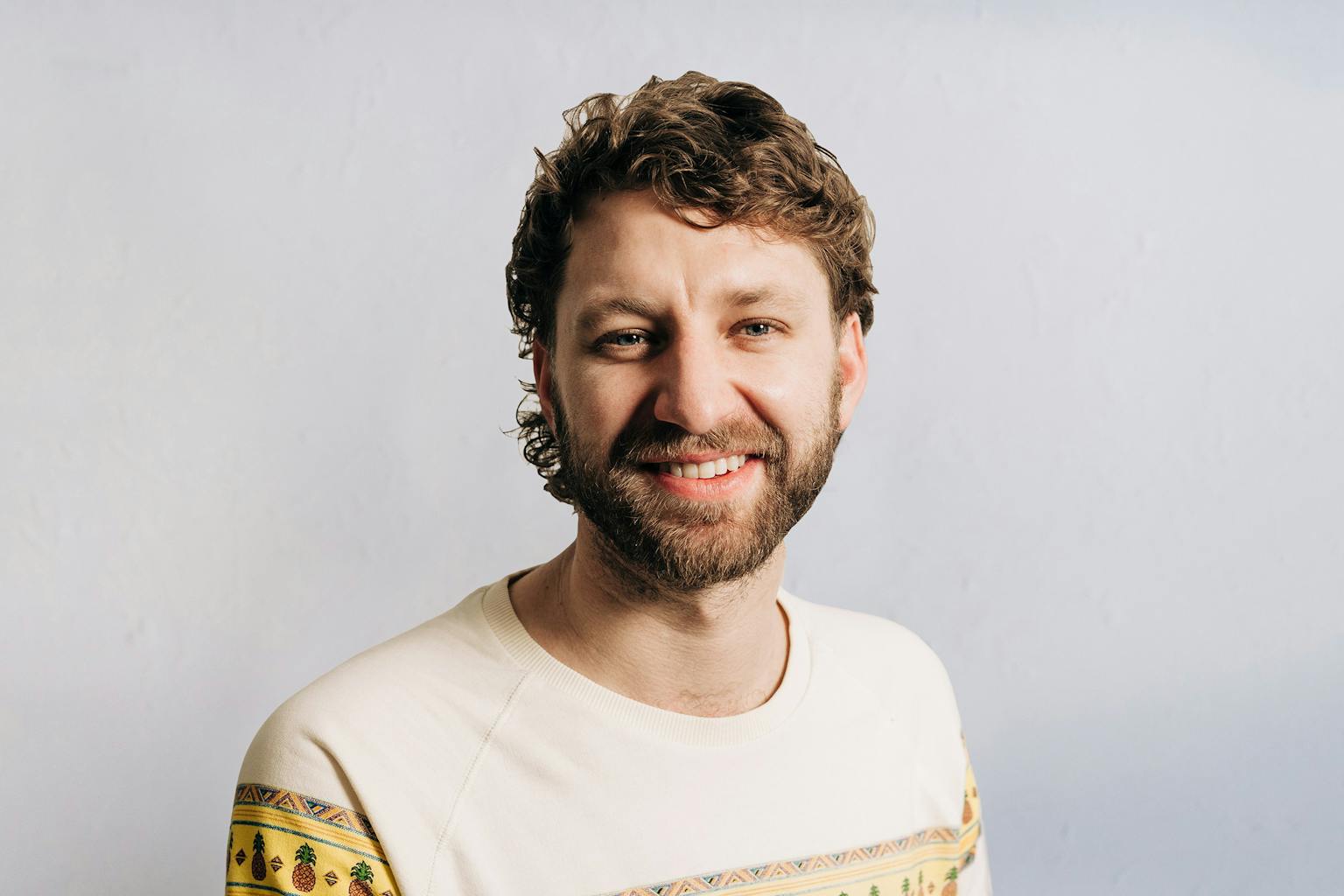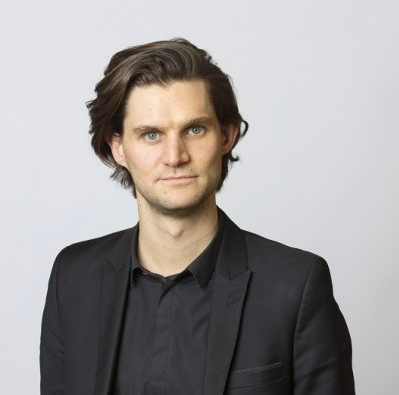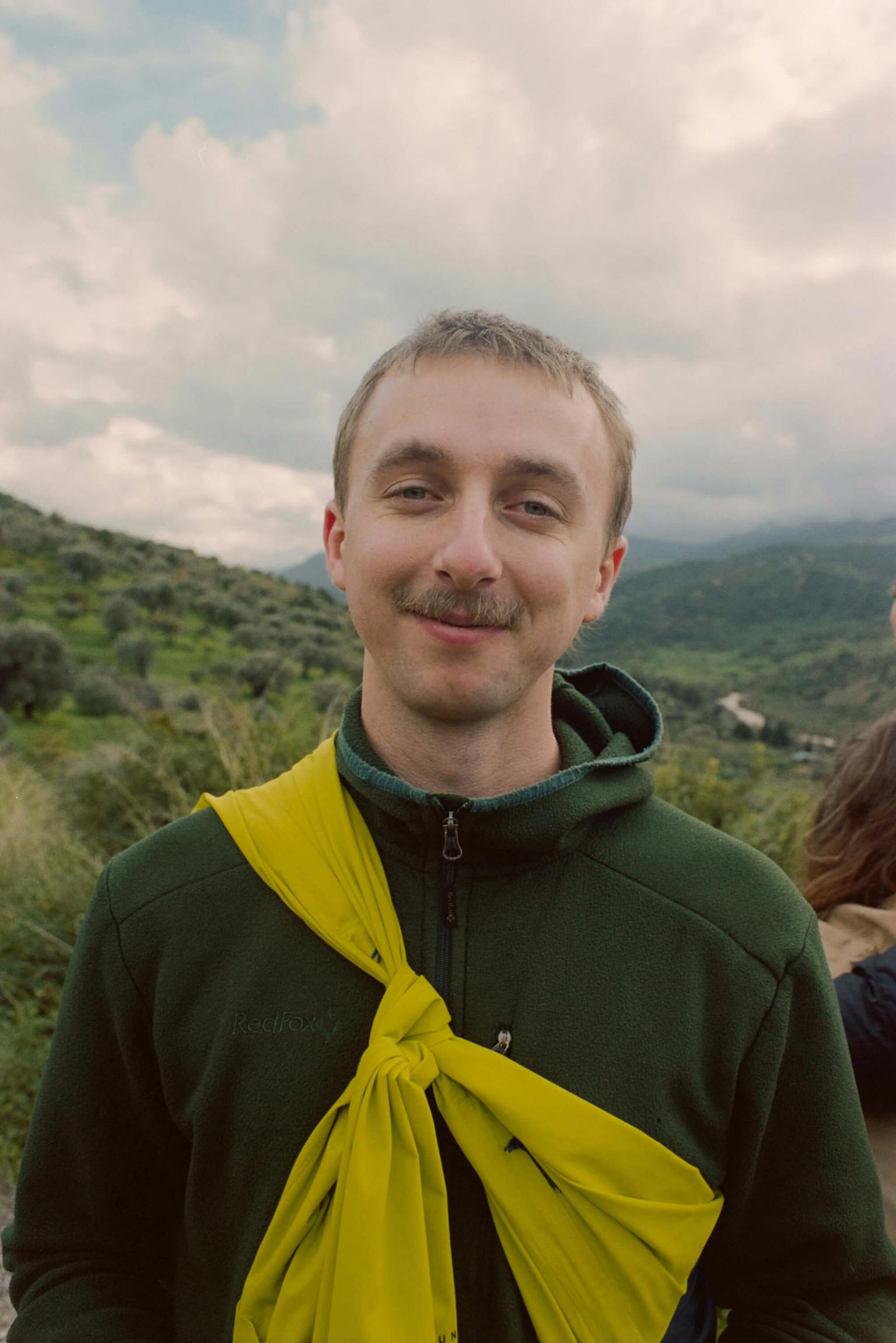WWMT is a recurring column from Reed Words about good-natured creative envy.
It features conversations with people who created something that makes us think — damn, we wish we were part of that.
For each, we get to know the people behind the project and discuss inspiration, the creative process, and the role of words in their work.
Room to ruminate

Index interior. Photo by
Most of us “creatives” got into this line of work not out of a born passion for brand deliverables, but for a love of the craft.
It can be easy to lose sight of that. You neglect your personal creative pursuits. Your work becomes work. Inspiration ebbs. And when that happens, not only are you not enjoying yourself — the quality of the product can suffer too.
Good agencies make an effort to protect that creative spark, striking a healthy balance between capital 'C' creativity and capital 'W' work in their approach to projects. When people have the time and freedom to pursue their own creative passions alongside their professional lives, it’s a virtuous cycle that makes for happier employees and better results.
For XXIX (Twenty-Nine), maintaining that balance is core to their identity. Their name is itself a reference to an age when they felt delightfully unsettled career-wise, and free to follow inspiration wherever it led them. They see personal creative projects and client work as reinforcing each other: the work funds artistic exploration; the artistic exploration strengthens the work.
And along the way, they’ve created a space to share their ethos with a like-minded community of “designers, poets, technologists, aesthetes, joke tellers, readers, eaters, artists, commies, freaks, and friends.”
That space is called Index.
Index merch. Photo by
In fact, sharing is the engine of the whole thing. As they say on the website: “What unifies us is our belief that creativity isn’t diminished when shared — that generosity and care are integral to our creative practices.”
Yes, Index is technically a “coworking” space. But Jacob Heftmann, co-founder of XXIX and Index, doesn’t like the label, along with most others. This is someone who “lives out of a backpack, usually in Mexico or Italy” after all. Besides, Index is much more than that. The community hosts workshops, knowledge-shares, yoga practice, participatory dance sessions, pottery nights, cooking lessons, and much more.
And day-to-day, it’s a uniquely egalitarian working community where creative people share inspiration and insights with each other.
We spoke to Jacob about his creative philosophy, the importance of community, and bringing Index to life.

Index interior. Photo by
Where does the name XXIX — “Twenty-Nine” — come from?
We called it “Twenty-Nine” in part because naming stuff is hard, as you know! We didn't want to spend a lot of time overthinking it and trying to come up with the perfect name. But it came from being in the agency world and feeling a little bit disillusioned. My partner Jake and I had this idea of making a place that didn't feel like a job, and instead felt like being 29 forever.
In my mind, being twenty-nine was a little bit disorganized and a little bit free and a little bit unprofessional in the good ways, so we tried to embody that sort of freedom in the creative environment.

Index interior. Photo by
Index and XXIX are closely tied — did they evolve together?
As we were starting the agency, we realized we needed a space to work together. So, to afford the space, we figured we could rent some of the desks and share the space. Nothing revolutionary about that.
But we also saw this as an opportunity to do something different. Not marketing necessarily, but something that would help us stand out as a unique, interesting kind of studio.
My partner Jake is kind of a creative genius. He has all these iconoclastic ideas. And we were seeing so many of the storefronts in New York being taken over by generic businesses or Chase Banks — like, Chase can afford to open a bazillion storefronts, but it's impossible for individuals to find a place. So for me, I came at it with a bit of a chip on my shoulder about that reality. I wanted to do something that was a bit of a middle finger to that.
Meanwhile, there’s this tradition of artist studios that are on the ground level in New York. We thought, what about bringing that kind of visibility to our creative practice? And we knew a lot of other freelancers who couldn’t afford a cool space of their own who might be interested.
So we pulled together to build the studio, and then we realized we could also use the space to facilitate people’s non-commercial design practices, their passion projects, their interests. We started hosting launch parties and book releases and design exhibitions and stuff. That was the predecessor to Index. It initially fulfilled a practical need for the studio generally, but quickly developed as its own idea, and Index in its current iteration was founded during the pandemic.

XXIX's work
Both Index and XXIX suggest a philosophy toward work that really privileges space for creativity. Can you tell us a bit about how you see personal and professional work interacting, and how that philosophy developed?
The client service business went through a transformation where I was super motivated just to be the best graphic design studio in the world. And then I had sort of had a personal crisis somewhere in the middle of that — a very acute and severe anxiety attack. It was a combination of all this stuff that I had never really confronted, hitting me like a freight train one day.
That was an eye-opener. Like, what am I in this for? How can I do things in a different way? And for me, that meant refashioning the studio around people. The model changed from “how can we do the best graphic design work” to “how can we build the best creative environment to do your job in?”
Which meant going back to the original ethos — what does it feel like to be 29 forever and not really have a job? How can we build this really safe, not stressful, healthy creative environment where people can do their work happily, lucratively, peacefully?

Events at Index.
That's still the mission that's really guided everything. That's why we have a profit sharing model. That's why all of the functions of the business are self-organized. That's why we don't have a management tier in our studio.
My project became the studio itself, really. I still love graphic design, but I’m increasingly happy to let the practitioners in the studio do that part. I guess the thread that runs through it all is just: empowering creative people and nurturing creativity.
So our view is that the client service business should be a seed fund for creativity and these other things we’re interested in, which then helps the work. Index was one of those ideas, though now it supports itself, which is amazing.
And that’s still actually the model, although we've had to professionalize both of the businesses as we’ve grown. But it’s still a big part of who we are.
What we’ve found is that more people come to us because of our creative projects or for ideas like Index than for our past client projects. That wasn’t necessarily the intention, but it’s been really good for the growth of the studio.
How do you describe Index?
I’m not really into labels, so we’ve almost tried not to even define it. But from a purely practical standpoint you have to be able to say what it is, right?
I guess the idea is just sharing resources, specifically within the creative community. And I think the other big component is that it’s self-organized rather than corporately organized. So it’s a more organic space. There's a quarterly town hall meeting where finances are shared transparently and the members vote on space improvements, and the website shows exactly where your membership dues go.
And there's peer-led programming — we don't come up with the classes, the community does. It's amazing what people come up with, and Index is a space to share these resources: knowledge, space, tools.
"Everyone wants to understand, how do you build a community? And you don’t. It either grows or it doesn’t."
A lot of other coworking spaces try and fail to create an authentic sense of community. How does Index pull it off?
It has to happen organically. Everyone wants to understand, how do you build a community? And you don’t. It either grows or it doesn’t.
But we do take a much more personal, less corporate approach to community generally. When you walk into a WeWork, there might be a person at the counter that gives you the key card, but then you're sort of on your own.
If you go to Index, Elie — who was our intern when we started the studio and is now the director of Index — she welcomes you, she walks you around and introduces you to all the members, she invites you to all of the events and gets you situated. That's such a different vibe than you having to just do that on your own, right?

OOH campaign for Geneva
What do events at Index look like?
They run this huge spectrum. I did a creative coaching, peer-feedback group thing. We’ve had a pasta making workshop series, dance classes, a ‘legal knowledge for creatives’ workshop. There’s always something new — I can't even keep up with it. Some of it's really practical, some are more esoteric and creative.
But it's just such an incredible range, and people are so passionate. They’re looking for an outlet to share what they know, and others are really eager to learn.
It's also a nod to New York and its vibrancy. We try to include the online community as much as possible, but I think a lot of it is just the sheer volume of ideas and interesting people doing interesting things in New York. That’s the fuel for it.
Finally, what’s something you wish you’ve made?
Something I wish I'd made is Patagonia. It's the perfect combination to me: mission and values driven, making a job out of your passions, an unwavering dedication to quality. It’s proof that you can be highly successful while never compromising on your values.

Ad for Patagonia's "Common




